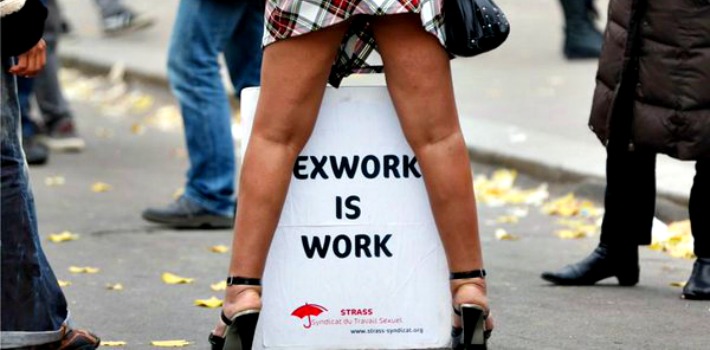
EspañolSex workers across the globe are uniting and refusing to be confined to the shadows of society. In particular, shared concerns regarding prohibition and threats to their safety have led them to coordinate the International Day to End Violence Against Sex Workers on December 17, with events in over 60 cities worldwide.
Various organizations and supporters will join hands to remember those who lost their lives in 2015, and to renew their commitment to defend the rights of all sex workers. Their emblem is the red umbrella, a symbol of resistance to discrimination.
International Day to End Violence Against Sex Workers on Thursday Dec 17th https://t.co/peoWEJXeG1 #IDEVASW #Dec17 pic.twitter.com/tzHzmT6dHM
— Armistead Centre (@ArmisteadCentre) December 14, 2015
Events include conferences in Seattle, Newark (United States), Barcelona (Spain), Ankara (Turkey); demonstrations in Vancouver (Canada), Toulouse (France), Paris (France), Austin and San Antonio (United States); and candle-lit vigils in Minneapolis (United States) and on the Gold Coast (Australia), among other cities.
“We cannot end the marginalization and victimization of all sex workers without also fighting trans-phobia, racism, stigma and criminalization of drug use, and xenophobia,” explains a press release from the Sex Workers Outreach Project, an NGO based in the United States.
The events aim to raise raise awareness regarding the prevalence of violence committed against sex workers — violence that, they state, comes in the form of assault, battery, rape, and even murder.
The International Day to End Violence Against Sex Workers began in 2003, when the US justice system convicted Gary Ridgway, a serial killer who murdered over 70 women in Seattle, mostly sex workers. The killer said he targeted sex workers “because he knew that he could, that no one would look for them.”
According to the Sex Workers Outreach Project, over 160 sex workers were murdered in 2015 — at least 48 in the United States, 39 in Latin America and the Caribbean, and 31 in Africa. They add that abused sex workers also experience unique barriers to accessing criminal-justice support.
“Sex workers have a 45-75 percent chance of experiencing sexual violence at some point in their careers and a 32-55 percent chance of experiencing sexual violence in a given year.” Also, 65 percent of trans-gendered individuals murdered around the globe are sex workers, says Transgender Europe, an NGO that works for the equality of all trans people in Europe.
Regarding sex workers being especially vulnerable to police and state violence, RedTraSex said that “In the Caribbean and Latin America, sex workers often are arbitrarily detained by law enforcement, and police frequently extort money or demand coercive sex in interactions with sex workers.”
“Globally, sex workers are calling on policymakers to address the conditions that allow such horrifying acts of violence to continue unabated, and insist on the inclusion of sex workers in the creation of new policies that will protect our various communities,” said Savannah Sly, president of the Sex Workers Outreach Project board of directors.
In addition to sex workers banding together to protect each other, Sly says “now we need solidarity from the global community.”
The Case of Canada
Approximately two years ago, Canadian sex workers celebrated the Supreme Court decision (Bedford v. Canada) that struck down three prostitution laws as unconstitutional. They also declared that those laws were dangerous for sex workers’ safety.
Despite that, only a year ago, the Canadian federal government established a new series of criminal laws called the Protection of Communities and Exploited Persons Act (formerly Bill C-36), which appeared to be contrary to the Bedford decision.
“Since the implementation of these laws, sex workers have reported increased stress, fear, and antagonism with police. The laws impel sex workers to work alone, be less visible, and forgo protective mechanisms,” explains a press release from the Canadian Alliance for Sex Work Law Reform.
“The displacement of street sex workers resulting from the criminalization of clients doesn’t make sex work go away; it only makes us easier targets for violent predators.”
Canadian sex-worker advocates will, therefore, use December 17 to direct their message to politicians for an end to the legislation.
Fergus Hodgson contributed to this article.
 Versión Español
Versión Español












